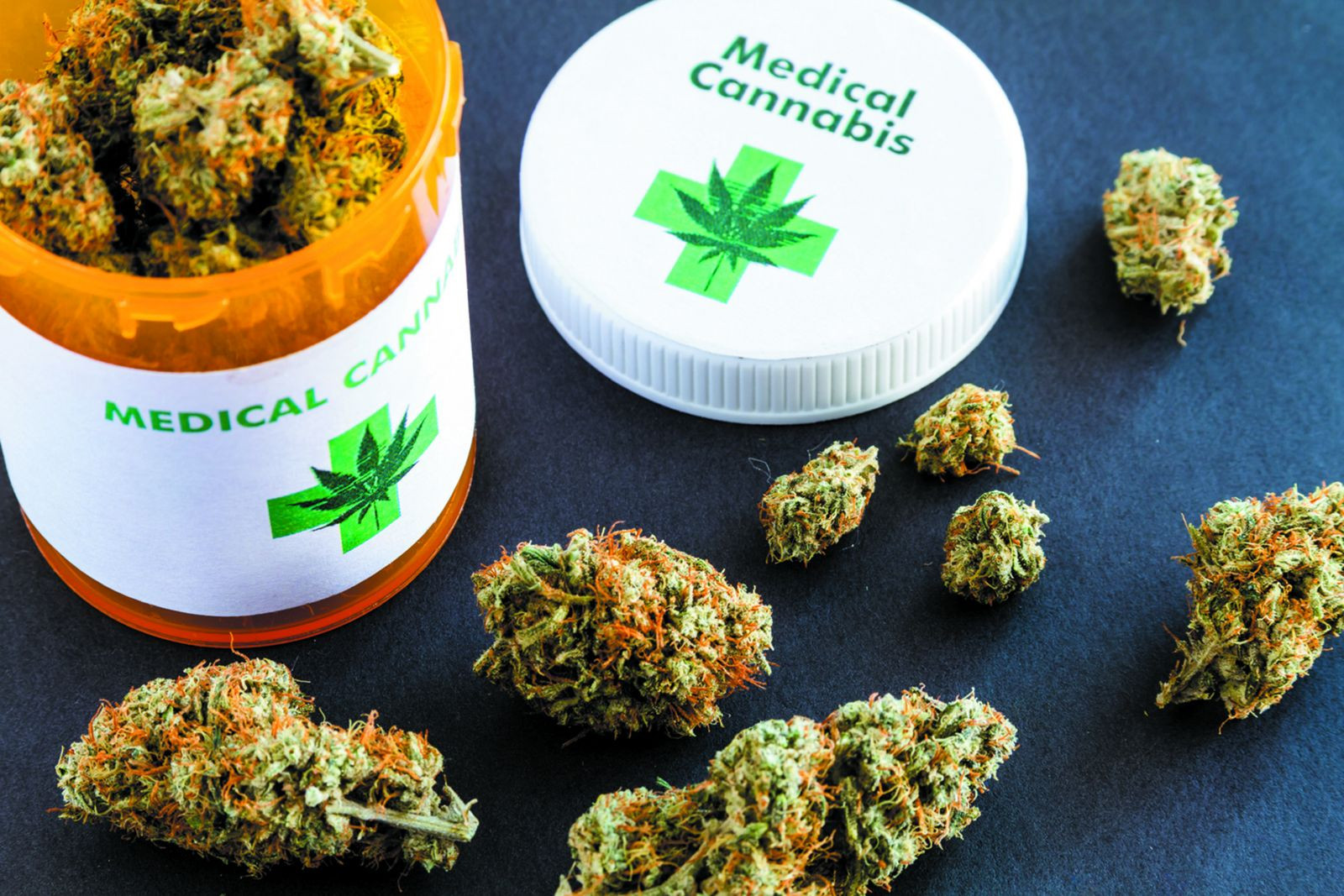Detailed Process for Getting Approved for Kentucky Medical Cannabis
Detailed Process for Getting Approved for Kentucky Medical Cannabis
Blog Article
Understanding the Legal Landscape Surrounding Medical Marijuana Worldwide
You're most likely conscious that attitudes towards clinical cannabis are moving internationally, however the lawful frameworks can be complex. What drives these variations, and just how do they effect gain access to for people looking for alleviation?
Historic Context of Clinical Cannabis Legislation
As you discover the historical context of medical marijuana regulation, you'll discover that its origins stretch back thousands of years. Old societies, from the Chinese to the Greeks, identified cannabis for its medical residential or commercial properties.
Rapid forward to the 19th century, when Western medicine started to embrace marijuana much more widely. Medical professionals suggested it for whatever from migraines to labor discomforts. The very early 20th century saw a shift, as societal understandings changed, leading to more stringent guidelines and stigmatization.
Understanding this rich history assists you value the complexities of modern clinical marijuana legislations. It's a trip through time that reveals the progressing partnership in between society and this effective plant.
Existing Lawful Standing by Area

The United States And copyright Summary
Steering via the landscape of medical cannabis laws in North America exposes a jumble of laws that differ substantially by region. In the United States, some states have fully embraced medical marijuana, allowing individuals gain access to through dispensaries, while others maintain strict prohibitions. Maneuvering through these varied laws can be difficult, as each jurisdiction has its own requirements for obtaining medical cannabis, consisting of certifying problems and application processes.
Europe's Diverse Rules
Steering via the legal landscape of medical marijuana in Europe can be complicated, offered the considerable variations in regulations throughout various nations. In some nations, like Germany and Italy, clinical marijuana is lawful and easily accessible with a prescription. Others, such as France, have a lot more restrictive plans, allowing just minimal accessibility through certain trials. The UK has actually also made strides, permitting specific cannabis-based medicines, but the process continues to be troublesome. On the other hand, nations like the Netherlands welcome a much more liberal strategy, though formal policies still hang back. As you check out these diverse policies, it is essential to stay notified, as legislations can alter swiftly and differ greatly from one country to one more. Recognizing these nuances can assist you browse the advancing landscape effectively.
Asia-Pacific Legal Trends
The Asia-Pacific area showcases a quickly advancing landscape for medical cannabis legislations, reflecting a mix of conservative and dynamic approaches. Countries like Australia and New Zealand have welcomed legalisation, offering regulated accessibility to medical marijuana. In Australia, individuals can get prescriptions, while New Zealand just recently passed a mandate to enable medical usage.
On the other hand, nations like Japan and South Korea preserve stricter guidelines, allowing just limited accessibility to cannabis-derived items. Regardless of these constraints, popular opinion is changing, with boosting phone calls for reform.
As you browse this complex landscape, stay educated regarding regional regulations, as they can differ considerably from one country to one more, affecting client access and market development in the region.
Secret Countries Leading the Way in Medical Marijuana
As you check out the landscape of clinical cannabis, you'll discover several countries setting impressive legalization landmarks. These nations not only establish regulatory frameworks that ensure safe gain access to yet likewise blaze a trail in medical study innovations. Understanding their methods will offer you valuable understandings into the future of cannabis use in medical care.
Legalisation Landmarks Attained
While lots of nations come to grips with the intricacies of marijuana regulation, several have made substantial strides in legislating medical cannabis, setting crucial precedents. copyright ended up being a leader in 2001, allowing individuals access to clinical marijuana, paving the method for other countries. In 2018, Australia did the same, developing a framework for prescription cannabis, which has actually since broadened. Germany joined the motion in 2017, enabling medical professionals to suggest clinical marijuana to people in demand. In the United States, different states have actually legalized clinical cannabis, developing a patchwork of legislations that influence public assumption and policy - Kentucky Medical Cannabis Doctor. These milestones show an expanding approval of clinical cannabis, encouraging even more countries to reevaluate their positions and welcome possible health advantages.
Regulatory Structures Explained
Recognizing the governing structures controling clinical cannabis is important for grasping exactly how different nations approach its usage. The United States provides a patchwork of policies, with states like California and Colorado leading in modern policies, yet government laws still develop difficulties. By familiarizing on your own with these structures, you can better understand the global landscape of medical cannabis.
Medical Research Improvements
Countries around the world are making considerable strides in medical cannabis research study, leading to a far better understanding of its therapeutic possibility. In the United States, institutions like the National Institutes of Health (NIH) are funding studies on cannabis's effects on chronic pain and epilepsy. As these countries push ahead, you'll witness an advancement in clinical practices and a clearer picture of how marijuana can enhance person results internationally.
Obstacles and challenges to Gain access to
Accessing clinical cannabis can be laden with challenges that originate from varying state regulations and regulations. You may discover that in some states, the process to obtain a medical cannabis card is complex and extensive, requiring comprehensive paperwork or consultations with approved doctor. In addition, also if you certify, the number of dispensaries can be restricted, making it hard to find a nearby source.
Insurance protection for medical cannabis is typically lacking, compeling you to pay out-of-pocket. Guiding with this complex landscape can feel overwhelming, yet understanding these difficulties is vital for anyone taking into consideration clinical marijuana as a restorative alternative.
Influence of Medical Marijuana on Wellness Outcomes
While lots of people remain hesitant concerning cannabis, study significantly reveals its possible benefits for different health problems. You could be surprised to learn that medical cannabis can aid ease chronic discomfort, reduce swelling, and handle signs and symptoms of anxiousness and anxiety (Kentucky Medical Cannabis Doctor). For people battling conditions like epilepsy or multiple sclerosis, marijuana has demonstrated significant healing effects, using relief when standard therapies fail
In addition, researches show that some elements of marijuana, such as CBD, can enhance general lifestyle for individuals undertaking therapies like radiation treatment. It's critical to consider that specific feedbacks to cannabis can differ commonly, so what benefit a single person may not help another. As you discover the possible effect of medical cannabis on health outcomes, speak with and keep an open mind with medical care professionals to customize a therapy plan that matches your one-of-a-kind needs and conditions.
The Duty of Medical Care Providers in Individual Gain Access To
As you navigate the complexities of clinical cannabis laws, it is necessary to recognize the essential role medical care carriers play in client accessibility. These professionals act as vital overviews, assisting clients understand their options and browse legal needs. They can analyze whether medical marijuana is suitable for your problem and give paperwork required for legal access.
Additionally, doctor frequently educate patients about the prospective advantages and threats of cannabis usage, ensuring notified decisions. They can recommend proper strains, dosages, and techniques of consumption customized to specific requirements. Their assistance is very important, particularly in directory areas where legislations differ substantially.

Future Patterns and Forecasts for Medical Marijuana Legislations
Medical care service providers will certainly remain to shape the landscape of medical marijuana regulations as they advocate for individual needs and engage with policymakers. You can anticipate an expanding pattern towards more comprehensive regulations that acknowledges the restorative benefits of cannabis. As research study expands, even more nations will likely embrace regulations that promote gain access to for people struggling with various problems.
Public point of view is shifting, too, with increasing acceptance leading the way for reform - Kentucky Medical Cannabis Doctor. You may see a rise in clinical marijuana programs tailored to specific demographics, such as experts and elders
Furthermore, as healthcare systems integrate marijuana right into therapy methods, insurers might begin covering cannabis-related expenses, further legitimizing its usage.
Finally, global partnerships can emerge, resulting in standard policies and quality assurance actions. Overall, the future of medical cannabis cannabis dispensary nevada laws shows up dynamic and encouraging, driven by evidence, advocacy, and patient-centered care.
Regularly Asked Inquiries
Exactly How Do International Treaties Affect Medical Marijuana Legislation?
International treaties can form your nation's medical marijuana legislations by establishing constraints or guidelines. When countries stick to these agreements, it often influences local regulations, making it crucial for you to remain informed on adjustments.
What Are the Adultness Requirements for Medical Marijuana Use?
The adultness for medical cannabis use differs by territory. In many locations, you must be at least 18, however some enable minors with parental consent. Always inspect neighborhood legislations before waging medical marijuana.
Can Employers Fire Employees for Medical Cannabis Usage?
Yes, employers can fire you for clinical marijuana usage, depending on state regulations and firm plans. If your job needs medication testing or if cannabis affects your performance, they could do something about it. Always examine your workplace rules.
Are There Restrictions on Clinical Cannabis Advertising?
Yes, there are constraints on clinical marijuana advertising. You'll locate policies differ by territory, usually restricting deceptive cases and calling for particular health and wellness cautions. It's critical to examine local legislations to assure compliance prior to advertising.
How Do Medical Marijuana Regulation Differ for Veterans?
Clinical cannabis regulations for veterans commonly consist of unique arrangements, allowing simpler gain access to or benefits. Some states focus on proficient requirements, while others might restrict use. It's crucial to examine your regional guidelines for specifics.
While several countries grapple with the intricacies of marijuana guideline, a number of have made substantial strides in legalizing medical cannabis, establishing crucial precedents. In the United States, numerous states have actually legalized clinical cannabis, creating a jumble of legislations that affect public perception and plan.Accessing medical marijuana can be laden with obstacles that stem from varying state legislations and regulations.As you browse the intricacies of clinical marijuana laws, it is necessary to recognize the pivotal function health care carriers play in person gain access to.Medical view it now care carriers will proceed to form the landscape of medical marijuana legislations as they advocate for patient demands and engage with policymakers.
Report this page